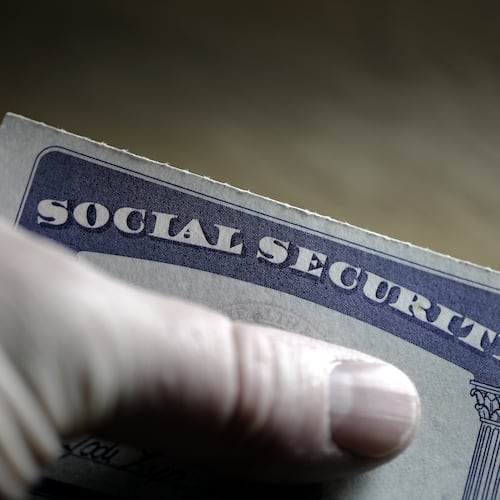President Donald Trump told reporters Tuesday evening he had officially signed the pardon for Susan B. Anthony, legendary women’s voting rights activist who was found guilty by an all-male jury of illegally voting in the 1872 presidential election.
Susan B. Anthony’s 200th birthday was celebrated earlier this year on Feb. 15.
Trump teased reporters Monday night during a Midwest campaign swing that he was going to pardon “very, very important” on Tuesday.
“She’s fully pardoned,” he said Tuesday, according to CBS News White House correspondent Mark Knoller.
Trump said he would sign “a full and complete pardon” later Tuesday, the 100-year anniversary of the ratification of the 19th Amendment, which ensured women the right to vote. It’s also known as the Susan B. Anthony Amendment.
Comments from Trump and some of those assembled for a White House event commemorating the 19th Amendment quickly pivoted into an appeal for Trump’s reelection.
Credit: AJC
“Win, lose or draw, we have to get it right,” Trump said, adding that mail-in voting, as opposed to absentee voting, leads to ballots cast by pets and the deceased. “We have to have honest voting. that’s what this is all about here. we have to have honest voting,” he said.
Anthony began her leadership role at age 17, when she started to collect petitions against slavery.
»RELATED: Google Doodle honors life and legacy of Susan B. Anthony
Anthony was the second oldest of seven children. Her family owned a farm and raised her to believe that everyone was equal under God. Many of her siblings also led anti-slavery efforts in their lifetimes.
In 1846, Anthony began to teach at Canajoharie Academy, making $110 annually, according to The National Susan B. Anthony Museum and House. She quickly became aware of the wage gap between men and women in the profession.
Her focus on women’s inequality truly started when she became friends with Elizabeth Cady Stanton. They started a women’s suffrage organization in 1869 that eventually merged with one created by Lucy Stone to become the National American Woman Suffrage Association.
Anthony continued to speak and ran a suffrage newspaper called The Revolution. She also lobbied Congress.
"Men their rights and nothing more; women their rights and nothing less," read the slogan of her newspaper.
»An unfinished movement: Reflecting on 100 years of women’s suffrage in Georgia
Her name reached the national spotlight in November 1872, when she was arrested for voting in an election in Rochester, New York. She was fined $100 but was not imprisoned. Although she refused to pay the fine, the authorities declined to take further action.
Anthony continued to travel the nation and speak for women’s voting rights until her death in 1906. It wasn’t until 14 years after she passed away that the 19th Amendment to the U.S. Constitution was passed, granting all U.S. women the right to vote.
»RELATED: 19 things you never knew about the 19th Amendment and women's suffrage
The legislation is known as the Susan B. Anthony amendment, and Feb. 15 is celebrated as Susan B. Anthony Day.
A bill to distinguish her birthday as a national holiday entered Congress in 2011. Currently, the states that recognize Susan B. Anthony Day are Wisconsin, Florida, West Virginia, California and New York.
The 19th Amendment states that “The right of citizens of the United States to vote shall not be denied or abridged by the United States or by any State on account of sex.” Congress passed it in 1919, and the amendment was ratified on Aug. 18, 1920.
Visiting Anthony’s grave site in Rochester on Election Day has become a popular ritual in recent years. Thousands turned out in 2016 for the presidential match-up between Trump and Hillary Clinton. In 2018, voters showed up by the dozens to put their “I Voted” stickers on her headstone.
About the Author
The Latest
Featured


